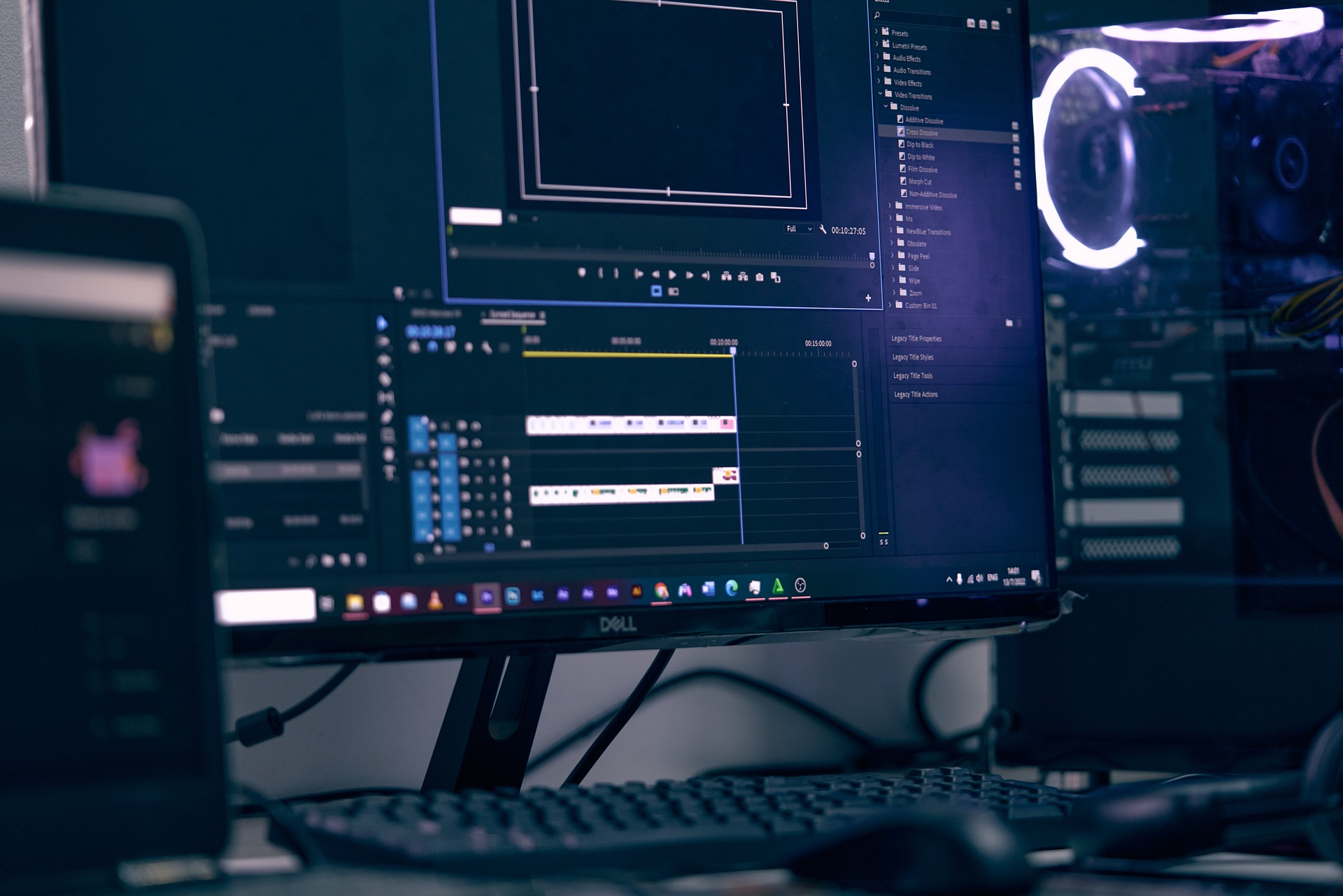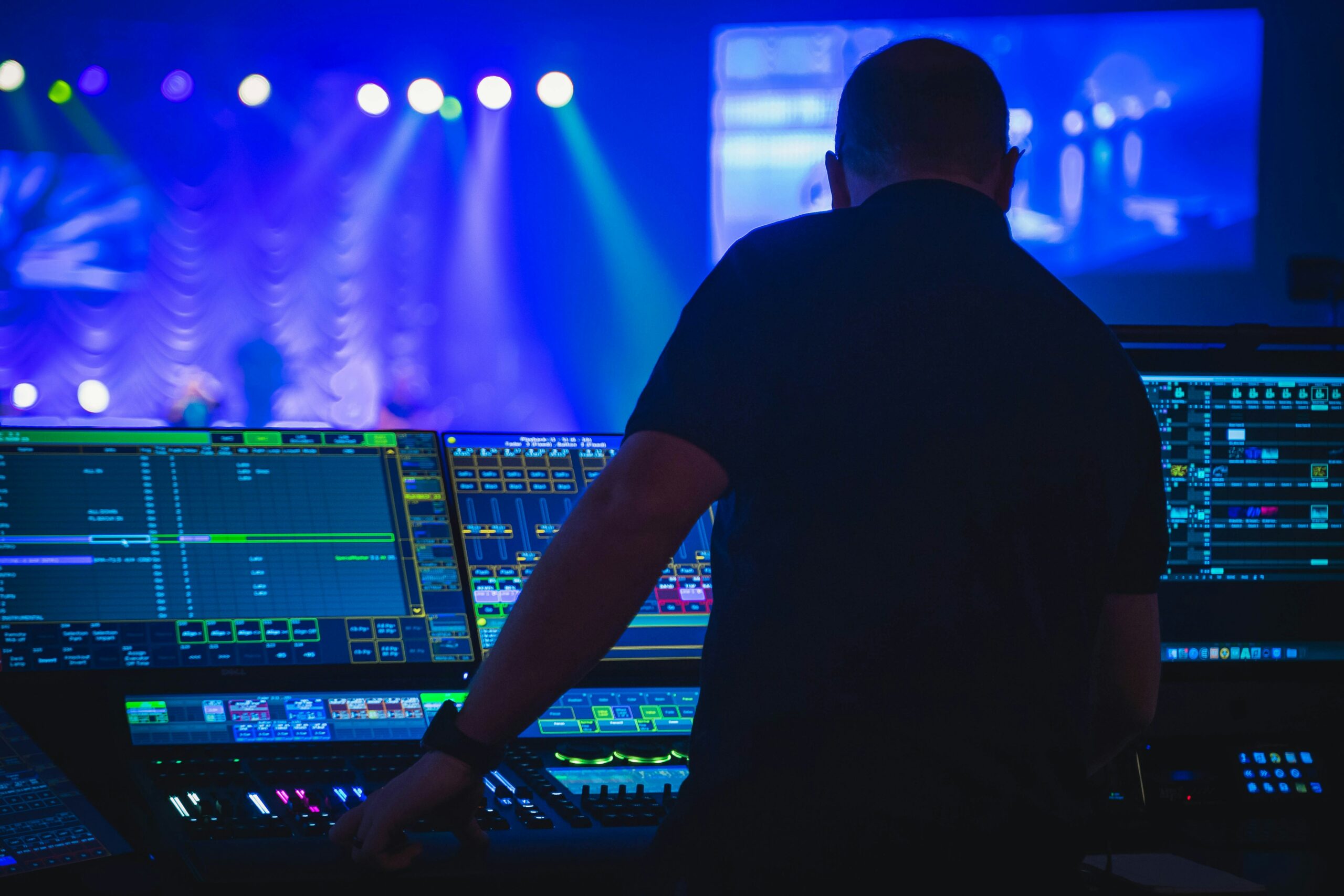In a world where technology is growing at a unique pace, the kingdom of audio editing has not been left behind. Enter the world of AI evolved Audio Editor, where algorithms and artificial intelligence are reshaping the way we create, enhance, and experience sound. This creative shift is not only changing the workflows of seasoned professionals but also making audio editing more accessible to beginners. Let’s go into the interesting world of AI-driven audio editing tools and understand how AI works.
The Beginning of AI Evolved Audio Editor :
Traditionally, audio editing required a skilled human touch, with professionals carefully cutting, mixing, and mastering audio tracks. However, the arrival of artificial intelligence has assisted in a new era, automating and increasing various feature of the audio editing process.
AI algorithms are designed to analyze huge amounts of audio data, learning patterns, and variations that human ears might miss. This enables these intelligent systems to make informed decisions about how to enhance or modify audio content.
Streamlining Workflows with Smart Automation :
One of the key advantages of AI evolved audio editors lies in their ability to automate repetitive tasks, freeing up valuable time for content creators. For instance, worldly tasks like noise reduction, equalization, and compression can now be handled by AI algorithms, allowing professionals to focus on more creative aspects of their work.
Imagine a scenario where a podcast producer no longer needs to spend hours manually removing background noise from recordings. AI algorithms can analyze the audio, differentiate between wanted and unwanted sounds, and intelligently reduce or eliminate unwanted elements. This not only saves time but also ensures a more polished and professional end product.
Elevating Audio Quality through Intelligent Processing :
AI algorithms excel at processing and enhancing audio quality in once unimaginable ways. One notable application is in the realm of adaptive equalization. Traditional equalization involves adjusting the balance of frequencies in an audio track manually. AI takes this a step further by dynamically adjusting the equalization based on the characteristics of the audio content.
For example, in a musical piece, an AI-powered equalizer can identify and boost certain frequencies to bring out the best in each instrument, resulting in a more balanced and sonic-ally pleasing composition. This level of adaptability allows AI to feed the unique needs of each audio project, optimizing the listening experience for the audience.
Redefining Creativity with AI Evolved Sound Design :
Creativity knows no bounds, and AI is proving to be a valuable tool in pushing those boundaries even further. Sound design, a crucial element in various media productions, has witnessed a revolution with the integration of AI.
Imagine a film editor working on a science fiction project. Traditionally, crafting futuristic soundscapes required extensive manual manipulation of audio elements. Now, with AI, editors can leverage algorithms that understand the essence of sci-fi and generate otherworldly sound effects autonomously. This not only accelerates the creative process but also opens up new possibilities for storytelling through sound.
AI Evolved Audio Editor Equalizing Audio Editing for All :
Perhaps one of the most notable impacts of AI in audio editing is its role in democratizing the field. Historically, audio editing tools were complex and a lot required a sharp learning curve. However, AI-powered solutions are changing this by making advanced editing techniques accessible to individuals with varying levels of expertise.
Entry-level content creators, such as podcasters and musicians, can now benefit from AI-driven features that assist in tasks like vocal tuning, rhythm correction, and even suggesting optimal mixing settings. This accessibility moves down the barrier to entry, empowering a broader range of individuals to participate in the creative process of audio production.
Challenges and Considerations in the AI Evolved Audio Editor Revolution :
While the integration of AI in audio editing brings about numerous benefits, it is not without its challenges. Ethical considerations, data privacy concerns, and the potential for job displacement in the audio industry are topics that merit careful examination.
Social concerns arise when AI is used to control or generate audio content in ways that may deceive or mislead listeners. It becomes critical for both developers and users to set up ethical guidelines to ensure the responsible use of AI in audio editing.
As well, faith in AI could potentially lead to job displacement in traditional audio editing roles. However, it’s crucial to recognize that AI is a tool that complements human creativity rather than replacing it. Industry professionals must adapt to these technological shifts, focusing on how AI can enhance their work rather than viewing it as a threat.
Shaping the Future of AI Evolution in Audio Editing
As we navigate this re-framing phase in audio editing, several trends are shaping the future of AI-powered tools in the industry.
1. Real-time Collaboration:
AI is paving the way for seamless collaboration by enabling real-time editing and feedback. Multiple contributors can work on a project simultaneously, enhancing efficiency and fostering creative synergy.
2. Personalized Sound Experiences:
AI algorithms are becoming more and more expert at understanding individual preferences. In the future, audio editing tools may offer personalized sound profiles, tailoring the listening experience to each user’s unique tastes.
3. Integration with Virtual and Augmented Reality:
As VR and AR technologies continue to evolve, AI-powered audio editing will play a crucial role in creating immersive and realistic soundscapes for virtual environments, gaming, and augmented reality experiences.
4. Advancements in Voice Editing:
With the rise of virtual assistants and voice-controlled devices, AI will continue to evolve in the realm of voice editing. Users may have the ability to modify or enhance their voices for various applications, from podcasting to voice-overs.
Conclusion :
In conclusion, the integration of AI evolved audio editor tools is transforming soundscapes across various industries. From automating dull tasks to elevating creativity and democratizing access to advanced editing techniques, the impact of AI is profound. As we navigate this exciting partition, it’s crucial to address ethical considerations, embrace evolving roles in the industry, and stay attuned to the trends shaping the future of AI in audio editing. The game has indeed changed, and the symphony of possibilities continues to expand as we harness the power of artificial intelligence in the world of sound.
